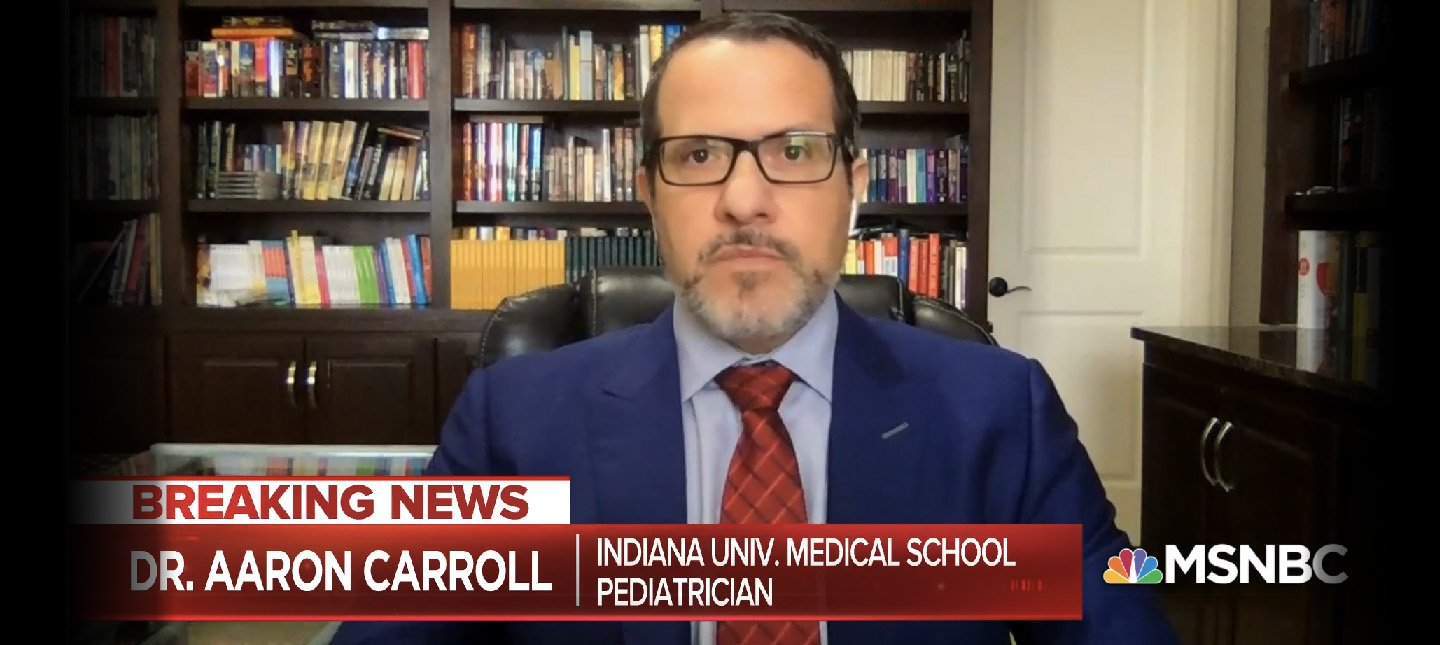Dr. Aaron Carroll advocates in national media for mass testing and nationwide social distancing
Nationally recognized health expert Aaron Carroll, M.D., from Regenstrief Institute and Indiana University School of Medicine, is urging American leaders to take swift and decisive action to suppress the SARS-CoV-2 virus. He’s advocating for a national period of social distancing, rather than the current state-by-state approach, and massive testing of the population.
In two articles published in The Atlantic, Dr. Carroll and his colleague, Ashish Jha, M.D., MPH, from Harvard University, write that it is crucial for Americans to continue social distancing. They believe everyone across the country must participate in social distancing for at least two weeks to make an impact on infection rates.
They write, “People without medical or public-health expertise are questioning whether physical distancing is worth it. They’re wondering whether it might be better to let this disease just run its course. That’s a catastrophically bad idea. The human cost would be devastating, and the economic toll from that devastation might be even steeper than what we’re seeing right now. It’s hard for people to understand just how bad an unchecked pandemic could be.”
They continue, “No one believes that these actions lack trade-offs. The economic costs of a pause are immense. We’re already experiencing them; we’re just not reaping the full rewards, because we have yet to do what’s really required. But if we are willing to do what is necessary, we can get the disease under control, get our economy moving again, and give Americans hope that we will hold the line until a solution finally becomes available.”
At this time, Dr. Carroll and Dr. Jha do not believe public health officials have the data needed to know when, where or if restrictions can be lifted. To address this, they advise scaling up testing capacity for COVID-19, writing, “We need to test many, many people, even those without symptoms. Testing will allow us to isolate the infected so they can’t infect others. We need to be vigilant, and willing to quarantine people with absolute diligence.”
Dr. Carroll is vice president for faculty development and a research scientist at Regenstrief, and vice chair, associate dean and professor at Indiana University School of Medicine. He appeared on MSNBC to explain the strategy and why he believes it is necessary.
Dr. Carroll was one of the first to raise the alarm about the potential for COVID-19 illness to overwhelm healthcare systems. His warning came just before the NCAA decided to cancel its 2020 Division I Men’s Basketball Tournament and many states began to shut down schools.
Read his The Atlantic articles here:











